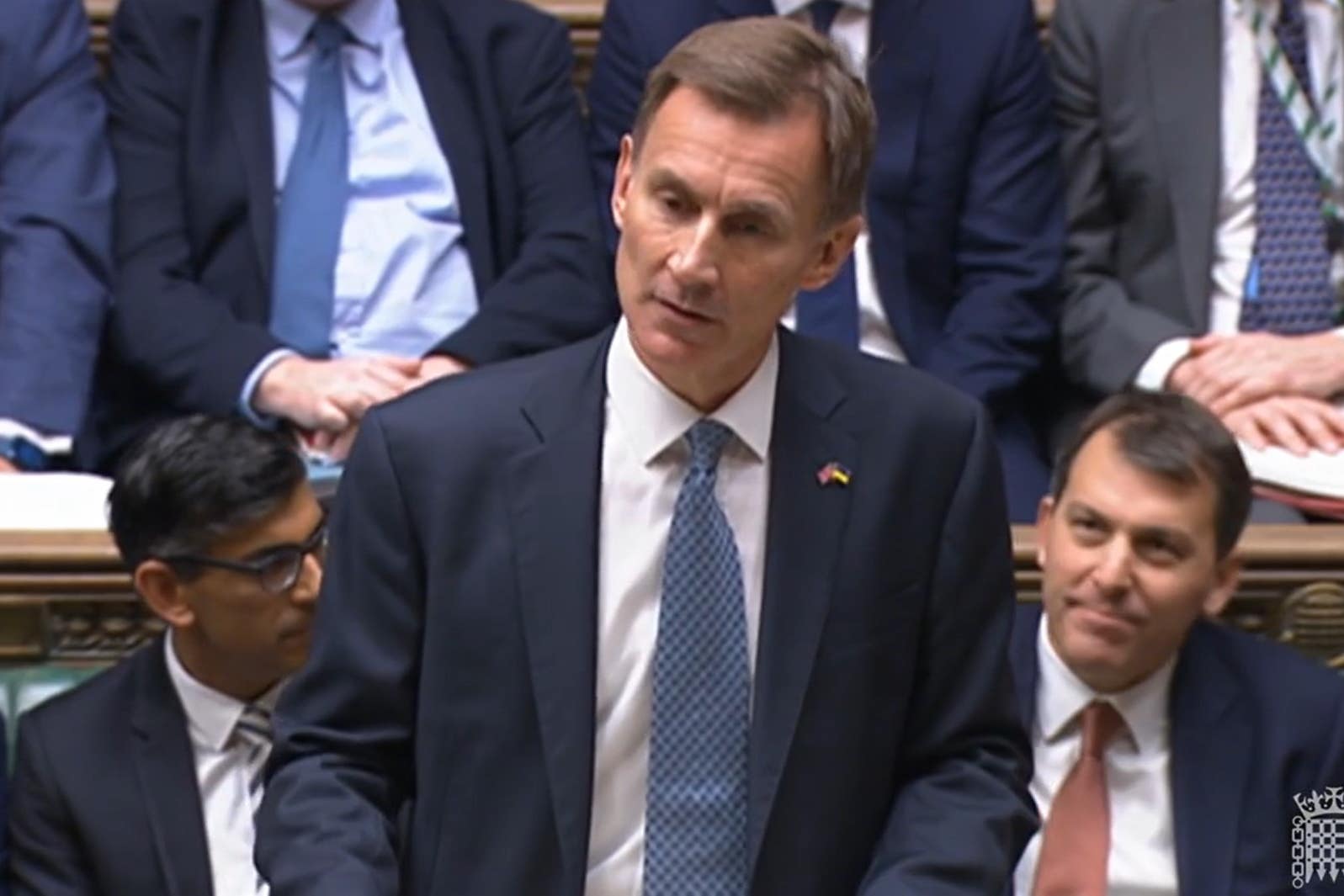Feed the Future: Jeremy Hunt ignores pleas to expand free school meals in autumn Budget
UK government ‘plays Scrooge’ while others are ‘boosting children’s health and educational success’, campaigners say

Your support helps us to tell the story
From reproductive rights to climate change to Big Tech, The Independent is on the ground when the story is developing. Whether it's investigating the financials of Elon Musk's pro-Trump PAC or producing our latest documentary, 'The A Word', which shines a light on the American women fighting for reproductive rights, we know how important it is to parse out the facts from the messaging.
At such a critical moment in US history, we need reporters on the ground. Your donation allows us to keep sending journalists to speak to both sides of the story.
The Independent is trusted by Americans across the entire political spectrum. And unlike many other quality news outlets, we choose not to lock Americans out of our reporting and analysis with paywalls. We believe quality journalism should be available to everyone, paid for by those who can afford it.
Your support makes all the difference.Jeremy Hunt‘s failure to support more children with free school meals in his autumn statement has been labelled “shortsighted” by charities and campaigners.
To make change happen, please sign the petition by clicking here
The Independent’s Feed the Future campaign, in partnership with a coalition of campaigning organisations coordinated by the Food Foundation, is calling on the government to extend free school meals to all children in poverty in England.
Currently, 800,000 children live in households on universal credit but miss out on free school meals because their parents earn more than £7,400 a year, excluding benefits.
The chancellor unveiled a host of measures in his spending plan to help the UK to weather its economic “storm” – including tax rises and a squeeze on public spending.
But changes to the free school meal scheme – which provides free lunches to the most disadvantaged in society – were absent from his plans.
The Feed the Future coalition of charities said the chancellor had ignored pleas from the education sector, health professionals, supermarket bosses and MPs to expand the scheme.

“He has also ignored the voices of affected children, many of whom face the shame and anxiety of going without food at school,” its statement said.
The coalition added: “It is shortsighted for the chancellor to ignore a policy intervention which expert analysis has shown will boost the economy by at least £8.9bn over the next 20 years, improving health, educational attainment and workforce productivity.”
Barbara Crowther from the Children’s Food Campaign said the UK government “plays Scrooge” while others are “boosting children’s health and educational success” through school meals. Wales has given all primary school children free school meals since September, while Scotland provides them to most primary school years with a promise to expand this.
Have you been affected by this story? Please reach out to zoe.tidman@independent.co.uk
Mark Russell from the Children’s Society welcomed help in Mr Hunt’s autumn statement such as one-off payments to support people on benefits with energy bills and the extension of the Household Support Fund, which councils use to support vulnerable residents. But he added: “They are still temporary sticking plasters over much bigger issues.”
The charity’s chief executive said: “We need long-term solutions such as increasing child benefit payments, feeding more children through free school meals, and long-term funding for local crisis support.”
The chancellor said he would be helping the most vulnerable with the cost of living crisis through a number of measures in the autumn statement, including increasing disability and working-age benefits in line with inflation and providing additional cost of living payments next year to vulnerable households.
He also said the energy price guarantee, which caps the unit price of energy, would carry on for another 12 months from April – albeit at a higher level of £3,000 a year compared to £2,500. “With prices forecast to remain elevated through next year, this will still mean an average of £500 support for every household in the country,” Mr Hunt said.






Join our commenting forum
Join thought-provoking conversations, follow other Independent readers and see their replies
Comments